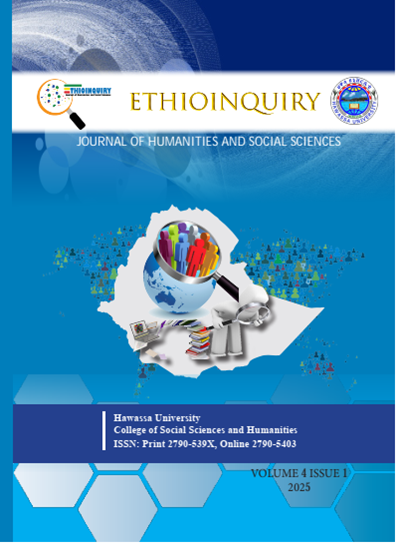Rural-Urban Linkages in Ethiopia
Practices, Challenges and Policy Frameworks: A Systematic Review
DOI:
https://doi.org/10.20372/Ethioinquiry/20251343Keywords:
Rural-Urban linkage, Rural Development Policy, Urban Development Policy, Policy FrameworkAbstract
Rural-urban linkages are pivotal to the socioeconomic advancement of Ethiopia, a nation marked by a substantial rural demographic and swift urbanization. This paper analyzes the practices, challenges, and policy frameworks pertinent to these linkages in Ethiopia, exploring the diverse mechanisms facilitating interaction between rural and urban sectors, including migration, trade, and resource flows. Employing the methods delineated in the PRISMA diagram, the reviewer undertook a comprehensive search strategy utilizing the Google Scholar database. Initial findings yielded 19,000 records, which were meticulously narrowed to 55 articles based on specific criteria such as recency (studies published after 2000), duplication, contextual relevance to rural-urban linkages, and clear authorship, as illustrated in the PRISMA flow chart. Furthermore, the four objectives outlined in the methodology were thoroughly examined within the review. While these linkages present opportunities for both rural and urban areas, they also entail challenges such as uneven development, infrastructural deficits, and social inequities. Moreover, insufficient policy frameworks often inadequately address the complex interactions between rural and urban spaces. This document underscores the imperative for integrated and inclusive policies that foster balanced development, enhance infrastructure investment, and ensure equitable resource distribution. By effectively addressing these challenges and leveraging the potential of rural-urban linkages, Ethiopia can advance sustainable development and enhance the well-being of its diverse population.

